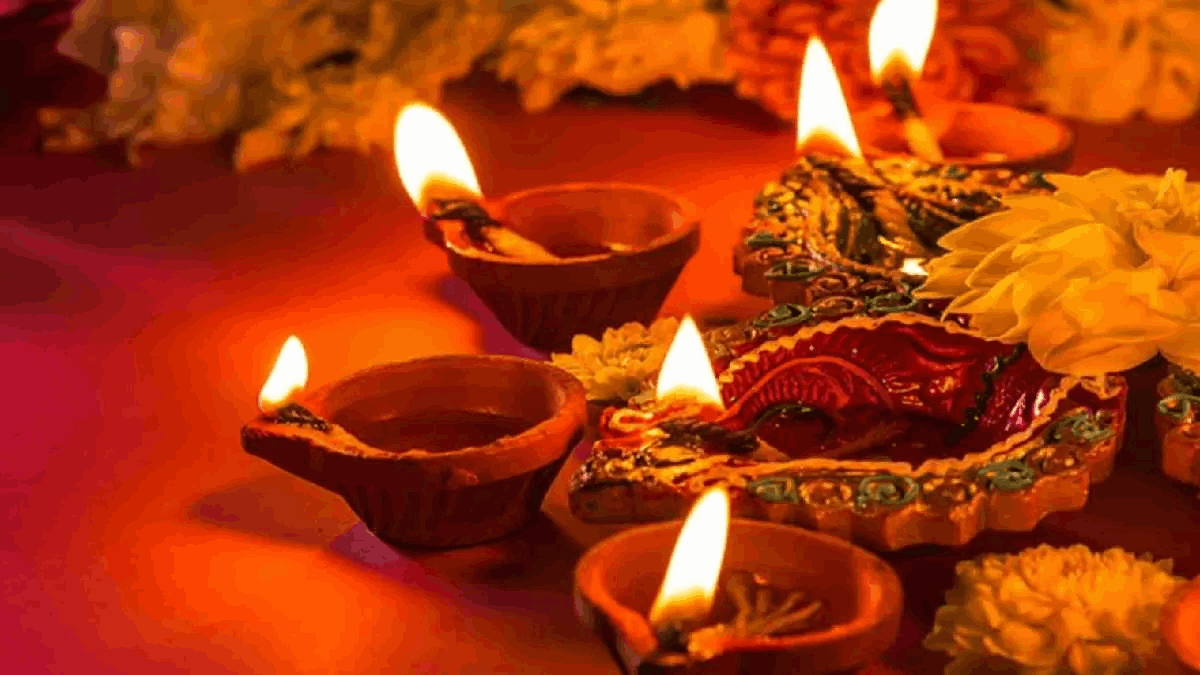Diwali – The Festival of Light: A Celebration of Hope and Joy
Diwali, also known as Deepavali, is one of the most cherished and widely celebrated festivals, not only in India but across the globe, especially among Indian communities. Known as the Festival of Lights, Diwali marks a time of renewal, reflection, and the triumph of good over evil. With its rich traditions, vibrant celebrations, and deep spiritual significance, Diwali brings people together in joy and unity.
The Significance of Diwali
Diwali is more than just a festival; it is a cultural and spiritual event that holds immense significance for millions of people. It is a time to celebrate light, both literally and metaphorically. The lighting of oil lamps (known as diyas) is a symbol of dispelling darkness and ignorance. According to Hindu mythology, Diwali celebrates the return of Lord Rama to his kingdom of Ayodhya after a 14-year exile, during which he defeated the demon king Ravana, restoring peace and order. The people of Ayodhya celebrated his return by lighting thousands of lamps to guide him back, which is now commemorated each year as Diwali.
In addition to the victory of good over evil, Diwali also honors the goddess Lakshmi, the goddess of wealth, prosperity, and good fortune. It is believed that on this night, Lakshmi visits homes that are clean, bright, and filled with joy. People worship her to seek blessings for a prosperous year ahead, both in material and spiritual wealth.
The Rituals and Traditions
Diwali celebrations span several days, each marked with distinct customs and rituals. The preparations for Diwali often begin well before the festival itself. Homes and workplaces are thoroughly cleaned, painted, and decorated to welcome Lakshmi. Rangoli (intricate designs made from colored powders or flower petals) are created at the entrance of homes, adding to the festive atmosphere.
The main day of Diwali is spent with prayers, family gatherings, and the lighting of diyas. Temples and homes are illuminated with millions of lights, and fireworks light up the night sky, creating a spectacular display of color and sound. The sound of crackers symbolizes the victory of light and joy over darkness.
Diwali is also a time for giving and sharing. Families exchange gifts, sweets, and festive greetings. In many regions, people also purchase new clothes and household items, symbolizing new beginnings and prosperity.
The Spirit of Togetherness
One of the most beautiful aspects of Diwali is the sense of togetherness it fosters. Families come together to celebrate, whether they are near or far. The festival is a time to strengthen bonds with loved ones, share laughter, and create lasting memories. Diwali encourages people to reflect on their personal journeys, let go of grudges, and renew their relationships. It’s a celebration of love, kindness, and gratitude.
The Environmental Impact
While Diwali is an occasion for joy and celebration, there has been growing awareness about its environmental impact, especially in terms of air pollution caused by fireworks. In recent years, there has been a significant shift towards more eco-friendly celebrations, with many people opting for quieter fireworks or even celebrating with light displays and eco-friendly decorations. Additionally, the use of organic and non-toxic colors for rangoli and the promotion of sustainable practices have become important aspects of modern Diwali celebrations.
Diwali Around the World
Although Diwali is primarily celebrated in India, it is observed by Indian communities worldwide, including in countries such as Nepal, Sri Lanka, the United States, Canada, the United Kingdom, and many others. In these regions, Diwali has become a cultural event that transcends religious boundaries, bringing people of all backgrounds together in celebration. Many cities around the world light up their streets and hold festivals, parades, and public gatherings to mark the occasion.
The Symbolism of Light
At its core, Diwali is a celebration of light. It is a reminder that light, whether in the form of candles, lamps, or the guiding light of wisdom and compassion, has the power to banish darkness from our lives. The light of Diwali signifies hope, new beginnings, and the enduring power of goodness in the face of adversity.
As we celebrate Diwali, it serves as an opportunity for reflection and gratitude for the blessings we have received. It is a time to come together in harmony and joy, to reaffirm our commitment to kindness, and to spread light, not only in our homes but in the world around us.
Conclusion
Diwali is a festival that transcends time and space, weaving together the threads of tradition, culture, and spirituality. It teaches us the importance of family, community, and positivity. Through its vibrant lights, festive music, and heartfelt prayers, Diwali reminds us that even in the darkest times, there is always light to be found. Whether through the flicker of a diya or the warmth of a shared meal, Diwali is a celebration of life’s most precious gifts: love, hope, and the joy of togetherness.

